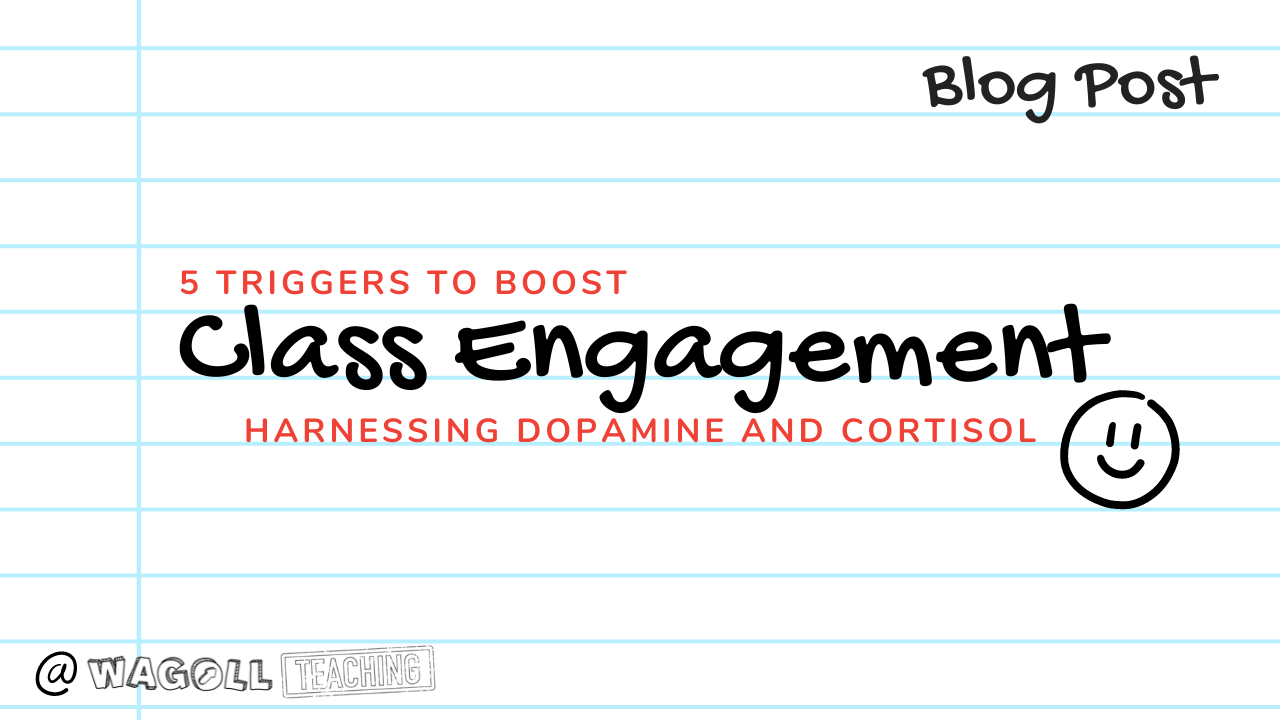|
As a teacher, capturing and maintaining your students' attention is crucial for effective teaching and learning. Understanding the complex relationship between hormones like dopamine and cortisol, and attention can assist with lesson planning. Dopamine, associated with pleasure and reward, plays a critical role in reinforcing positive behaviours and enhancing immediate attention. In contrast, cortisol, the "stress hormone", can either enhance or impair short-term attention depending on its level. By leveraging this knowledge, teachers can create a learning environment that promotes optimal learning and memory performance, and helps students maintain focus and engagement in the classroom. But what is the connection between dopamine, cortisol, and attention, and how can this knowledge be applied to teaching practices to keep students engaged and attentive?
10 Comments
|
SearchWith a keen interest in the neuroscience and psychology of learning, WAGOLL Teaching is about sharing research alongside great, simple teaching ideas to a global teaching community.
Ben has been in education for over 10 years and is passionate about simplifying high quality teaching and learning through innovative and practical approaches in the classroom. sUBSCRIBE |
|
Who are we? |
With a keen interest in the neuroscience and psychology of learning, WAGOLL Teaching is about sharing research alongside great, simple teaching ideas to a global teaching community.
|
All copyright reserved ©.
I would like to remind all visitors to this website that all pages on this site are copyright protected, unless stated. Most importantly, this site is for the use and enjoyment of all children, parents, guardians, carers and teachers who are involved in WAGOLL Teaching. Please use the resources/ideas as you need without replicating them for your own gains.
I would like to remind all visitors to this website that all pages on this site are copyright protected, unless stated. Most importantly, this site is for the use and enjoyment of all children, parents, guardians, carers and teachers who are involved in WAGOLL Teaching. Please use the resources/ideas as you need without replicating them for your own gains.









 RSS Feed
RSS Feed


